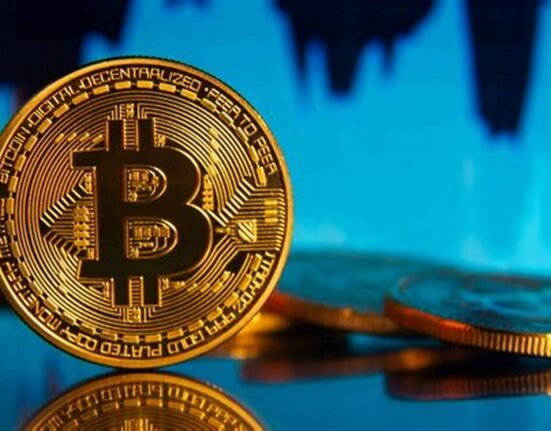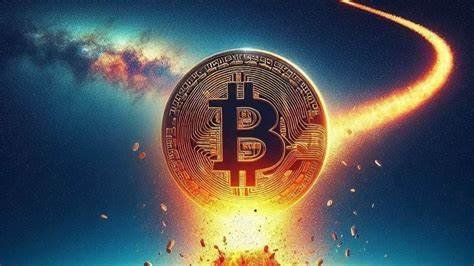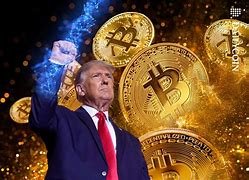Decentralized finance, or DeFi, has emerged as a powerful force that is reshaping the landscape of the traditional banking system, offering new possibilities and disrupting old practices. By leveraging blockchain technology and smart contracts, DeFi removes the need for central authorities like banks, brokers, and lenders, enabling users to access financial services in a decentralized, peer-to-peer manner. This new financial model is transforming the way we think about money, transactions, loans, investments, and even insurance. With DeFi, anyone with an internet connection can now participate in financial markets, regardless of their geographical location, social status, or financial background. This shift has the potential to provide financial inclusion to billions of people who have been excluded from traditional banking systems, while offering greater transparency, security, and efficiency.
At the heart of DeFi is the promise of financial freedom. Traditional banking systems have long been criticized for their inefficiencies, high fees, lack of accessibility, and exclusionary practices. For instance, individuals in rural areas or low-income regions often face barriers to opening bank accounts, securing loans, or accessing credit. In contrast, DeFi platforms allow anyone with an internet connection to engage in financial activities such as lending, borrowing, trading, and investing. This means that millions of people who have been underserved by traditional banks now have access to services that were previously out of reach, leveling the playing field and promoting financial equality.
One of the key features that sets DeFi apart from traditional finance is the elimination of intermediaries. In traditional banking, financial institutions act as intermediaries between individuals, businesses, and governments, controlling access to services such as loans, investments, and currency exchange. These intermediaries often charge high fees, create delays, and impose various restrictions that limit access to financial products. In the DeFi world, smart contracts automate and execute transactions without the need for intermediaries. This streamlines the process, reduces costs, and ensures that transactions are transparent, secure, and executed exactly as agreed upon. Through platforms like Aave, Compound, and MakerDAO, users can lend and borrow money directly from one another without relying on banks or other financial institutions, enabling them to bypass traditional lending systems and access better terms and rates.
The decentralization of exchanges is another game-changing aspect of DeFi. Decentralized exchanges (DEXs) such as Uniswap, PancakeSwap, and SushiSwap enable users to trade cryptocurrencies and tokens directly with one another, without the need for a centralized exchange to facilitate the transaction. This model allows users to retain control over their assets throughout the entire trading process, avoiding the risks associated with centralized exchanges, where funds are often held by the platform itself and can be subject to hacks or regulatory intervention. With DEXs, users are in control, which increases the level of security and transparency while reducing fees and transaction times. These exchanges also provide more opportunities for liquidity and offer a wider range of trading pairs compared to traditional exchanges, giving users access to diverse markets and assets.
In addition to lending, borrowing, and trading, DeFi has introduced new ways for users to earn passive income through mechanisms like yield farming and staking. Yield farming involves providing liquidity to decentralized platforms in exchange for rewards, often in the form of additional tokens. Staking, on the other hand, allows users to lock up their digital assets in a blockchain network that uses proof-of-stake (PoS) to validate transactions. By doing so, users earn rewards for securing the network and participating in its operations. These methods provide individuals with the opportunity to grow their wealth in ways that were once limited to institutional investors, and they can be particularly appealing to those who are looking for alternative investment opportunities with the potential for high returns. In contrast to traditional banking products like savings accounts or bonds, which offer low interest rates, DeFi offers more attractive yields, allowing users to maximize their returns on digital assets.
Another area in which DeFi is revolutionizing the financial sector is insurance. Traditional insurance models are often slow, expensive, and opaque, with intermediaries controlling the policies, premiums, and claims processes. DeFi insurance platforms like Nexus Mutual and Cover Protocol are transforming this space by allowing users to pool their funds and provide coverage against risks such as smart contract failures, hacks, or other unforeseen events. These platforms operate in a decentralized manner, meaning there are no middlemen to take a cut of the premiums or delay claims processing. Instead, smart contracts are used to automatically execute payouts when certain conditions are met, ensuring a faster, more transparent, and more efficient claims process. By eliminating the need for centralized insurance providers, DeFi platforms are making insurance more affordable and accessible to people around the world, regardless of their location or financial status.
The overall impact of DeFi on traditional banking systems is profound. As more individuals, businesses, and institutions begin to adopt decentralized models of finance, the traditional financial system will be forced to adapt in order to remain relevant. While some banks have already started experimenting with blockchain technology and offering crypto-related services, they are still operating within the confines of the old, centralized system. DeFi, on the other hand, is already operating in a fully decentralized environment, which allows for more innovation, flexibility, and speed. For instance, traditional banks rely on physical infrastructure and intermediaries to process transactions, which can create inefficiencies and delays. In contrast, DeFi platforms operate on a global scale without the need for physical branches or intermediaries, enabling them to offer faster and cheaper services.
The continued growth of DeFi also raises questions about the future of central banks and regulatory bodies. As DeFi platforms operate outside the traditional banking system, they are largely unregulated and can pose challenges to governments that are trying to maintain control over monetary policy and financial stability. However, many experts believe that DeFi can complement traditional finance, rather than replace it entirely. By working together, decentralized and centralized financial systems could create a more inclusive, efficient, and resilient financial ecosystem that benefits everyone. Moreover, regulatory frameworks are likely to evolve over time, as governments recognize the potential of DeFi and seek to integrate it into the broader financial system in a way that ensures consumer protection and financial stability.
In conclusion, decentralized finance is driving a revolution in the financial world by providing individuals with greater control, transparency, and access to financial services. Through innovations like decentralized lending, decentralized exchanges, yield farming, staking, and insurance, DeFi is offering new opportunities for individuals to manage their finances and grow their wealth outside of traditional banking systems. As more people embrace DeFi, the financial sector will continue to evolve, breaking down barriers, promoting financial inclusion, and creating a more secure and efficient global financial system. The future of finance is decentralized, and it holds the promise of a more equitable, accessible, and transparent financial ecosystem for all.







Leave feedback about this